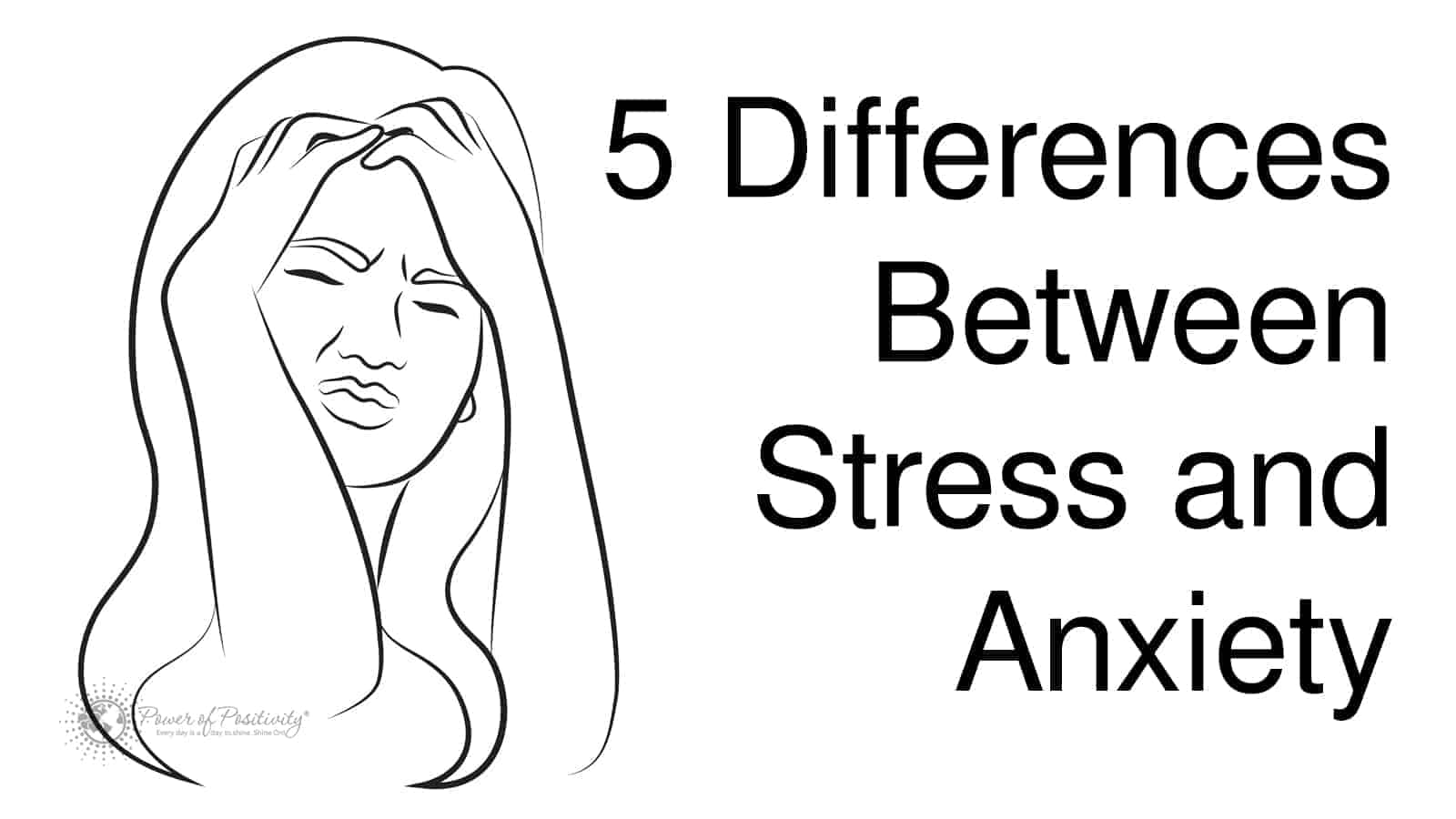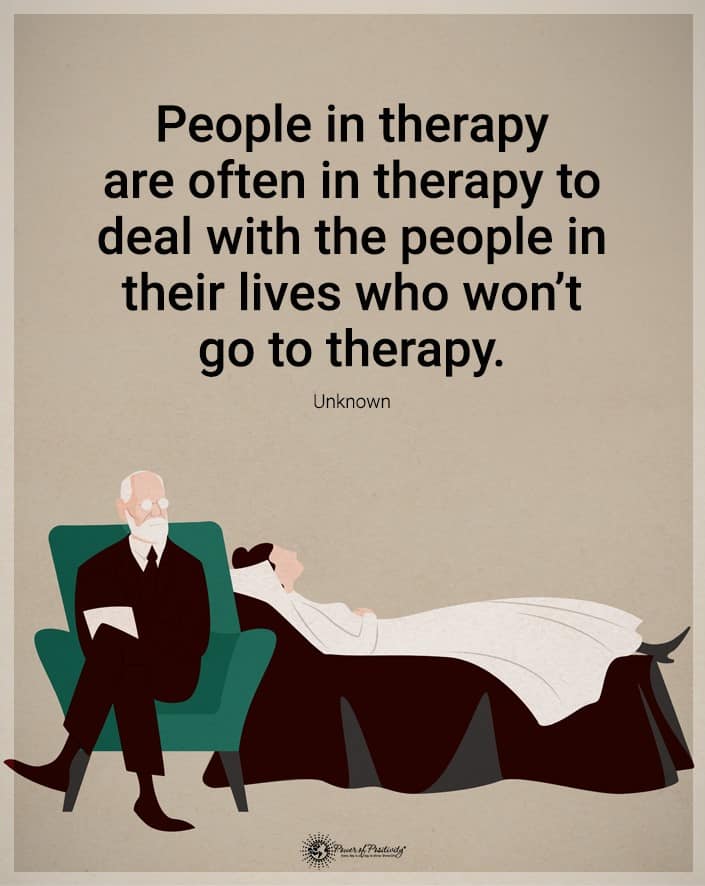Stress and anxiety are similar. People often use these two words interchangeably, but there is a difference between these two emotional responses. It’s time to eliminate the confusion. Here are five differences between stress and anxiety.
What is stress?
Stress is a normal emotional response to a demand put on your brain or body. When you experience a challenge at work or school or have a significant life change, you will feel stressed. Some people cope better with stress than others. Stress can affect your health, so you must pay attention to the cause and reduce it. Examples of stress include:
- Stressors related to school, work, or your family.
- Stress from a sudden negative experience or change such as a divorce, death in the family, losing your job, or illness.
- Stress from an event such as an assault, war, major accident, or natural disasters like a hurricane, tornado, or earthquake. This type of traumatic event can produce physical symptoms and temporary emotional ones.
What is anxiety?
They describe anxiety as a natural response to stress. It involves feeling fearful or apprehensive about the future. You may feel anxious on your first day at work or when you have a job interview. Anxiety causes these emotional reactions:
- Worry
- Nervousness
- Concern
- Uneasiness
If your anxiety continues longer than six months and interferes with your life, you could have an anxiety disorder. Anxiety disorders make you feel fearful all the time. Sometimes these fears are intense or debilitating. Everyday things can become difficult for you because of your constant worry about what could happen. Left untreated, your condition may get worse.
What are anxiety disorders?
Anxiety disorders are a widespread type of emotional disorder. They affect people of all ages. Common anxiety disorders include the following:
- Panic disorder
- Phobias
- Social anxiety disorder
- Obsessive-compulsive disorder
- Separation anxiety disorder
- Illness anxiety disorder
- Post-traumatic stress disorder
Who’s most at risk for an anxiety disorder?
Researchers suggest there are genetic and environmental factors that can contribute to who develops an anxiety disorder. General risk factors include the following:
- Individuals who are especially shy or had inhibitions as a child
- Exposure to a stressful or negative experience in early childhood or early adulthood.
- Biological relatives who have a mental illness or other mental health issues
- Physical conditions like thyroid problems, heart problems, or certain medications can cause anxiety disorders
Five differences between stress and anxiety
It may be hard to decide if you’re struggling with stress or anxiety. But there are noticeable differences between the two of them. Here are the five significant differences between stress and anxiety.
1 – Different in how long they last
Stress is a reaction to an external cause. It could be a test at school or your first day at work. Usually, your feelings of stress go away once you finish the test or complete your first day of work. Anxiety reacts to an external, but it doesn’t go away when you remove the stressor.
2 – Different in how they affect your body
If your conditionspersists, it can get so severe that it turns into an anxiety disorder. Anxiety can affect your body in a variety of ways, including
- Having trouble concentrating
- Your mind goes blank
- Fatigued all the time
- Muscle tension
- Can’t control your worry
- Sleep problems
- Unsatisfying sleep
Stress is a physical or emotional response to the demands and pressures of your life. Some people don’t process stress well, resulting in health problems such as the following:
- Digestive disorders
- Headaches
- Sleep disorders
- Heart problems
- Asthma
- Overeating
- Alzheimer’s disease
3 – Stress has a known cause, but anxiety may not have a noticeable trigger
You usually know what makes you feel stressed out. You know your job is a source of stress for you. But it may be hard to pin down where your triggers originated. You may not remember an unpleasant childhood experience or not know that you have a genetic tendency toward a specific mental health disorder. That’s why it’s essential to see a professional counselor who can help you find the cause of your anxiety.
4 – Stress is manageable, but anxiety may not be
Most of the time, when you have stress, you can figure out how to manage it or get rid of it. Long-term anxiety can become unmanageable, so that you can’t do your regular daily tasks.
5 – Different emotional responses
Anxiety and stress cause different physical and emotional reactions. Here are some differences and similarities between the two emotional responses.
| Anxiety | Stress | Both |
| restless | moodiness | racing heartbeat |
| nervous | anger or irritability | fast breathing |
| tense | dizziness | diarrhea |
| sweating | unhappiness | constipation |
| feeling of dread | overwhelmed | higher blood pressure |
| uneasy | loneliness | fight or flight response |
Primary causes of stress
There is a wide assortment of reasons for feeling stressed. These include the following triggers:
- Unhappy at work
- Too much responsibility at work
- Working too long of hours
- Unclear expectations of you at work
- Dangerous work
- Lack of security at work
- worried about being fired
- Death of a loved one
- Divorce
- Financial problems
- Getting married
- Moving
- Illness
- Emotional problems
- Caregiving of elderly or sick family member
- Causes of anxiety
Anxiety is part of your life, but after several months, if you’re still experiencing intense fear about everyday situations, you could have an anxiety disorder. Anxiety symptoms can start in childhood or teen years and can continue into your adulthood.
Causes of anxiety disorders
- Stress from illness: Serious health conditions cause you to worry or worry about your treatment.
- Trauma: If you experienced abuse or witnessed a traumatic event as a child, you’ll be at risk of an anxiety disorder.
- Stress buildup: A big event or smaller stressful life situations can trigger your anxiety. If there was a death in your family, plus work stress plus financial problems-these can pile up on you. You may end up with extreme pressure.
- Personality: Some personality types are more apt to experience this than others.
- Drugs and alcohol: Misuse of drugs and alcohol and withdrawal can make your anxiety worse.
- Having family members with mental illness: Anxiety disorders run in families.
How to manage problems of stress and anxiety
Anxiety and stress are normal reactions to difficult situations in your life. They provide the fight-or-flight response that keeps you safe if you’re in danger. Generally, stress is your body’s reaction to a threat. But this outcome is your body’s reaction to stress. You need to figure out what stressors are setting off your anxiety and stress. Then you can better deal with them. Here are some things to help you manage them.
Exercise
According to studies, regular exercise has a positive impact and heals your mind. Some activities that can help you with your stress or anxiety include:
- Running
- Biking
- Tennis
- Dancing
- Swimming
- Fast walking
- Talking
Seek counseling for your anxiety
Talking with a trusted friend, your pastor, or a family member is essential to help you reduce overthinking. Talking about your worries, fears, and stressors can help relieve them.
Setting boundaries
Set boundaries for yourself on what you will take on at work, home, or school. Know what causes your stress or anxiety, and eliminate it from your life. Of course, not everything can be taken away, but there are many things you can do to find relief. Perhaps it’s time to find remote work instead of staying at a job where you need to commute to work. Maybe you need to pull out of some of your responsibilities at church or school.
Setting boundaries is just one positive management tool for reclaiming your mental health.
Relaxation
Relaxation techniques are another way to improve your mental health. Try some of these techniques:
- Deep breathing exercises
- Visualizing a tranquil scene or the beach
- Practice yoga
- Practicing Ta Chi
- Slowly counting to 10
- When do you need to see a doctor?
- If you find you can’t deal with your mental illness, it could be time to see a doctor. Warning signs you need to see a doctor include things like
- Excessive worry makes it hard for you to do your everyday daily life
- Irrational fears
- Significant changes to your sleep patterns
- Important changes to your hygiene habits
- Feeling moody and low
- Thinking about self-harm
Other things you can do to deal with your stress and anxiety include these:
- Accept the stuff you can’t control
- Figure out what triggers your reaction
- Limit your caffeine and alcohol
- Settle to be good, but don’t aim for perfection
- Eat nutritious foods
- Get enough sleep
Final thoughts of beating stress and anxiety
Some stress and anxiety are typical in your life. You may have a hard time distinguishing the difference between stress and anxiety since they are similar. Stress typically has limits, and stressors cause it. Once the causes of stress are removed, your stress will go away. The reasons for anxiety are harder to nail down. Plus, if it continues, you may end up with an anxiety disorder. Fortunately, you can manage and improve your mental health by setting boundaries, exercising, and relaxation techniques. If none of this helps, or if your symptoms get worse, it could be time for you to speak to a doctor to get relief.

















 Community
Community

